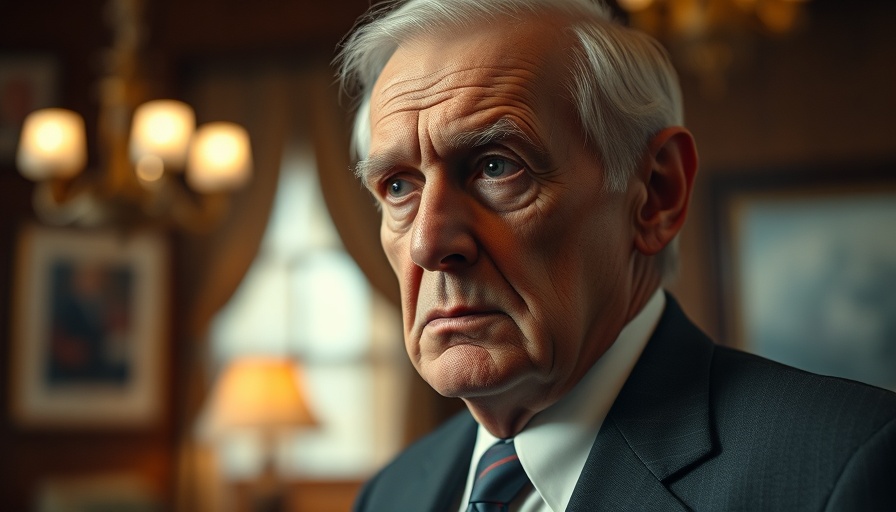
Trump's Sanctions Strategy: A Push for Peace or Political Posturing?
In a bold statement last Friday, President Trump expressed his intentions to impose 'large scale banking sanctions, sanctions, and tariffs' on Russia until a ceasefire and peace agreement is established in Ukraine. This declaration came amid escalating attacks from Moscow, which have intensified in recent weeks, raising concerns about the humanitarian crisis in Ukraine. Trump's remarks were posted on his platform, Truth Social, signaling a shift in his approach towards Russia, traditionally marked by a softer stance during his previous presidency.
Understanding the Context: Russia's Aggression and Ukraine's Response
The backdrop to Trump's announcement is critical: Russia has been unleashing violence on Ukrainian cities and infrastructure, which has included missile strikes against energy facilities. Ukrainian officials report significant casualties and damage to civilian areas, with Russian military operations becoming increasingly aggressive. Trump's comments seem to be a reaction to these developments, effectively positioning him as taking a tougher line against Russia than in the past.
Could Sanctions Make a Real Impact?
The proposed sanctions, while politically resonant, may have limited economic effects. Current figures show the U.S. imports only about $3 billion worth of goods from Russia, suggesting that new tariffs might not significantly compress Moscow's economy. However, they could serve as a symbolic gesture to reinforce U.S. commitment to Ukrainian sovereignty and express outrage over Russia's military actions.
A Shift in U.S. Foreign Policy?
Trump's renewed threats prompted questions about U.S. foreign policy direction under his leadership. Following a recent contentious meeting with Ukrainian President Volodymyr Zelenskyy, Trump's candid acknowledgment of difficulties in negotiating with Kyiv raises eyebrows. His assertion that dealing with Russia could be 'more accessible' evokes skepticism, especially considering the long history of aggression from the Kremlin.
Negotiating Peace: The Upcoming Talks
In light of these tensions, U.S. and Ukrainian officials are reportedly preparing for discussions aimed at bringing both parties back to the negotiation table. Secretary of State Marco Rubio and National Security Advisor Michael Waltz are expected to lead a delegation to Saudi Arabia next week, where they will engage with Ukrainian representatives to explore potential pathways towards peace.
The Broader Implications for NATO and Allied Nations
The implications of Trump's proposed sanctions extend beyond the U.S. to affect NATO and other allied nations. Widespread concern exists among European leaders regarding a possible thaw in U.S.-Russia relations and subsequent concessions that could embolden Putin. As the situation evolves, maintaining a united front among NATO allies remains crucial to countering the Kremlin's ambitions.
Public Reaction: Skepticism and Criticism
Trump's threats of sanctions and tariffs have led to a mixed public reaction. Critics argue that his approach appears more aligned with Russian interests than with those of Ukraine, shaking the confidence of allies and raising doubts about a genuine commitment to ending the conflict. In contrast, some supporters suggest that Trump's unorthodox strategy could open the door to a peace agreement.
Conclusion: The Path Ahead
As the international community watches closely, the next steps taken by both the U.S. and Russia will prove crucial in shaping the trajectory of the conflict. The coming weeks will likely be defining moments in navigating a resolution amidst varied geopolitical tensions. Without sustained dialogue and commitment from both sides, achieving peace may continue to appear elusive.
 Add Element
Add Element  Add Row
Add Row 



Write A Comment